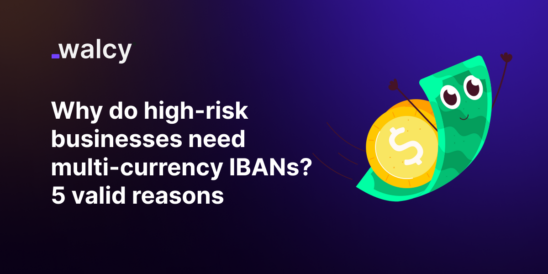Pending transaction is not a new concept when it comes to money transactions and banking.
You’re at the mall shopping and swiping your card, you’re purchasing something online, or you’re transferring money, and you notice some of the transactions are marked as “pending” in your account.
But what is it? Why are there pending transactions, and when will they be processed?
Okay, so this guide is all about pending transactions. We’ll go over what they are, why they happen, and what to do if you run into problems.
Things like when your money’s gone but the transaction is still pending or how refunds work with pending transactions. We’ll also explain what happens if a pending transaction just vanishes.
What Are Pending Transactions?
Pending transactions refer to transactions that have been started but not yet settled or confirmed by the payment processor or bank.
In this phase, the transaction is held temporarily in your account but not transferred to the receiver or merchant. Pending transactions can be seen on credit cards, debit cards, and online payments.
For example, when you make a purchase using your card to buy gasoline from a pump at a gas station or make an online purchase, the merchant asks your bank for permission to make the payment.
The money is held by the bank for a short time, and you see the purchase listed as “pending” in your account until the entire transaction is finished.
Read about: Top Online Payment Methods Across The World.
How Pending Transactions Work
Here’s how the process of making a payment or purchase works:
Authorization Request: The merchant asks your bank or payment processor for authorization of the transaction.
Temporary Hold: The bank puts a temporary hold on the funds in your account, ensuring there are enough funds for the amount required.
Pending Status: The transaction is “pending” on your account, which means it has not been completed yet.
Completion: Once the merchant completes the transaction (i.e., ships the product or delivers the service), the bank completes the payment and updates the transaction status to “posted.”
Reasons for Pending Transactions
There can be numerous reasons for pending transactions, and being aware of the same can allow you to manage your money more effectively. What follows are the most common reasons:
- Authorization Hold
Merchants usually place an authorization hold on your account to make sure that the money is available. This is so in places like car rental, hotels, and gas pumps, where the value might be unknown.
- Processing Delays
Pending transactions may be caused by processing delays on the part of the bank, merchant, or payment processor. This is after a weekend or holidays or when carrying out system maintenance.
- Fraud Prevention
Banks will hold transactions to check further to avoid fraud. It is especially common in the case of suspicious or large transactions.
- Incomplete Transactions
If a transaction is not finalized by the merchant (e.g., due to technical issues), the transaction may stay pending until it is processed.
- International Transactions
International transactions are slower to process since currency conversion and other verification processes must be executed.
Read about: Payment Failure : Why It Happens And How To Avoid It
Typical Issues with Pending Transactions
While pending transactions are a normal payment process, they are perplexing or irritating at some point. The following are a few of the issues and solutions to them:
- Transaction Pending but Money Debited
Reason: Money is held by the bank when a transaction is in the pending status, and thus it appears money is debited.
Solution: Cancel the hold in case the transaction has been timed out or canceled. Call your bank in case funds are not refunded after a couple of days.
- Pending Transaction Refund
Cause: When you are returning merchandise or canceling a purchase while the transaction is still pending, the refund will be slower.
Fixed Solution: Wait for the transaction to be cleared, then request a refund from the merchant. Contact your bank if the issue persists.
- Pending Transaction Disappears
Raised Cause: Pending transactions may disappear due to cancellation of authorization by the merchant or when the transaction times out.
Fixed Solution: Wait for some days and verify your account if the transaction is credited. Otherwise, the amount should be reversed to your account automatically.
Read about: How to Accept Payments Online Without a Merchant Account?
How Long Does a Pending Transaction Take to Process?
The duration of a pending transaction differs per type of transaction, merchant processing time, and bank policies. The following is an estimated timeframe:
- Debit/Credit Card Transactions: Usually 1-3 business days.
- Online Payments: 2-5 business days, depending on the payment method.
- International Transactions: Can take 7-10 business days because of extra steps in verification.
- Authorization Holds: Should be released within 3-7 days if the transaction doesn’t go through.
If a pending transaction is taking too long, call your bank or merchant to clarify.
Pending Transaction Issue Resolution
If you are having problems with pending transactions, do the following to solve the problems:
- Verify Transaction Details
Ensure that you verify the transactions’ details in your account for accuracy. Check for the name of the merchant, amount, and date of the transaction.
- Contact the Merchant
Since the transaction has been pending for a very long time, speak to the merchant to see if they are aware of any issue with the status of the purchase or payment.
- Contact Your Bank
Seek help from your bank or payment processor if the problem continues. They can provide information about the transaction and help resolve any issues.
- Monitor Your Account
Track your account to check whether the pending transaction is updated or settled. If the amount is not cleared after the expected time, call your bank.
Read about: Payment Reversals 101: Types And Methods To Prevent.
Avoiding Pending Transaction Issues
To prevent pending transaction issues, follow the below steps:
-
Monitor Your Spending regularly
The solution to avoiding problems with pending transactions is to monitor your spending regularly.
Monitoring account activity enables you to keep your account current with posted and pending transactions, detect inconsistencies, and solve problems early enough before the situation becomes acute.
-
Budget for Authorization Holds
Authorization holds are temporary holds merchants put on your account to verify that funds will be available for a transaction.
Authorization holds are typically seen with businesses such as car rentals, hotels, and gas stations, where the final amount of the transaction cannot be determined.
Budgeting ahead of time for authorization holds and understanding how they work is the wise thing to do to avoid issues.
Inquire of the merchant, before making a purchase, what their authorization hold policy is.
For example, gas stations will authorize a 50−50−100, even if you are filling the tank with $20 worth of gas.
Read about: Multiple Payment Gateways 101: What Is It & How It Works?
-
Use Credible Payment Methods
The payment method involved can be responsible for going a long way to ensure that one does not end up experiencing pending transaction issues.
In avoiding such issues, utilize credible payment methods as well as credible merchants.
Choosing Reliable Payment Methods:
Use Trustworthy Platforms: Limit yourself to reputable payment platforms like PayPal, Stripe, or Walcy, which possess robust transaction dealing processes.
Verify Merchant Legitimacy: Validate with the merchant before purchasing to check if they are legitimate and trustworthy. Verify reviews, ratings, and feedback.
Avoid Insecure Sites: Payment needs to be made on a secure site with “https” in the web address and with a padlock icon displayed in the address bar.
-
Maintain Adequate Funds in Your Account
Low account balances are among the most common causes of pending transaction issues. If a transaction is pending, money is withheld temporarily, reducing your available balance.
If you don’t have enough available funds to pay for pending and posted transactions, you might incur overdraft fees, or transactions are declined.
How to Maintain Sufficient Funds:
Keep an Eye on Your Balance: Now and then, monitor your account balance to avoid falling short of money for pending transactions.
Avoid Overdrafts: Organize bank overdraft protection so that your bank does not slap you with charges for going into insufficient, in case your account balance falls below a certain level.
Budget Planning Ahead: Make sure your account balance is adequate for any large outstanding transactions you may have, such as rent or utility payments.
What Happens When a Pending Transaction Disappears?
When a pending transaction disappears from your account, it is likely due to one of the following:
- Authorization Expired: The merchant did not process the transaction within the time allowed, and the hold was lifted.
- Transaction Canceled: The transaction was canceled by your bank or the merchant.
- Technical Error: Your bank may have a technical problem in their system, because of which the transaction disappeared.
Read about: What is Payment Settlement? How does it Work?
Conclusion
Pending transactions are a normal aspect of the payment process but can be annoying sometimes.
By understanding how pending transactions function, why they happen, and how to deal with common issues, you will be in a better place to have more control over your finances and avoid unnecessary stress.
If you’re facing problems such as pending transactions with amount deducted, pending transaction refunds, or missing transactions, use the troubleshooting within this guide to fix them.
Keep a watch on your account at all times, coordinate with merchants and your bank, and take precautionary measures to prevent problems.
By being informed and well-read, you can manage pending transactions confidently and enjoy a hassle-free financial life.
Whether it is buying everyday things or making large payments, knowledge about pending transactions is required to stay in control of finances.
Do follow us on Facebook and LinkedIn, to stay connected with us.



